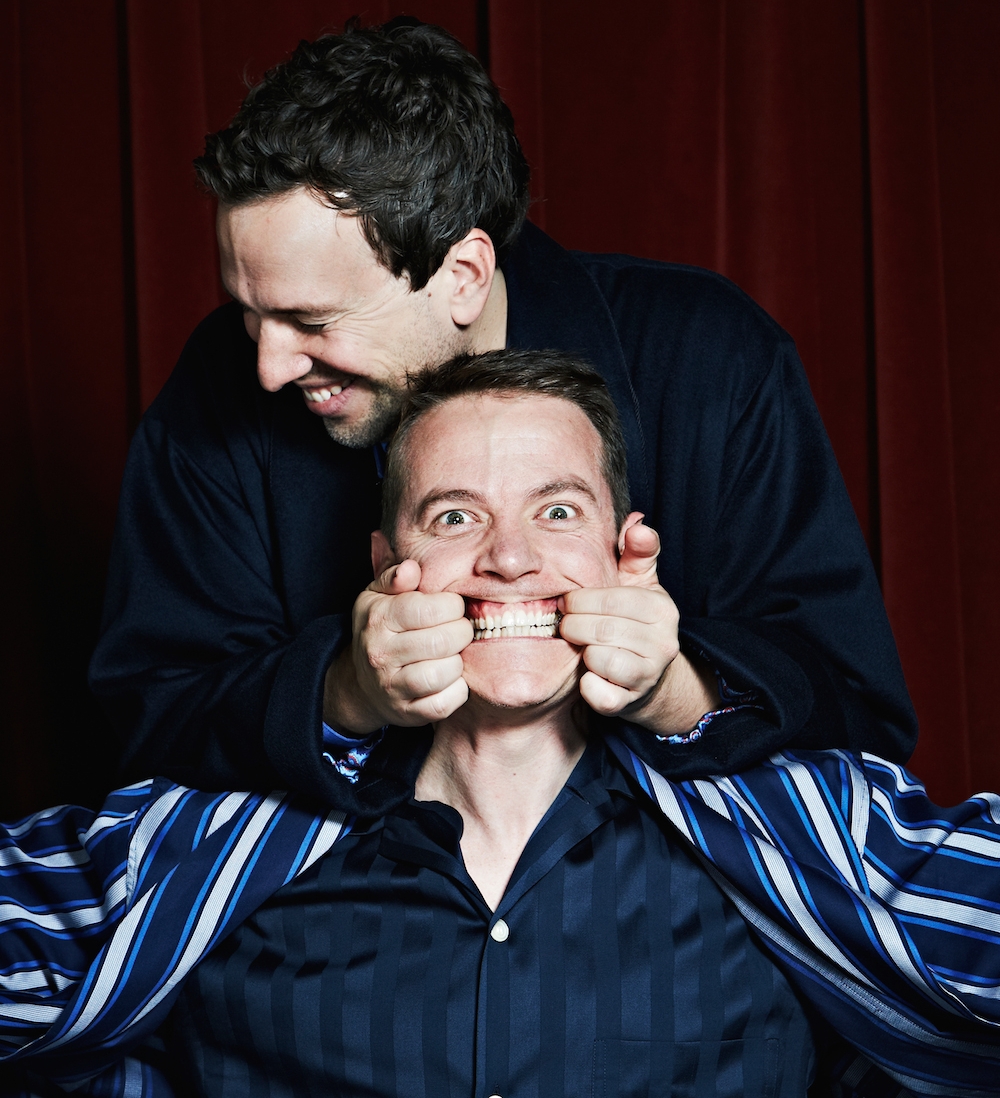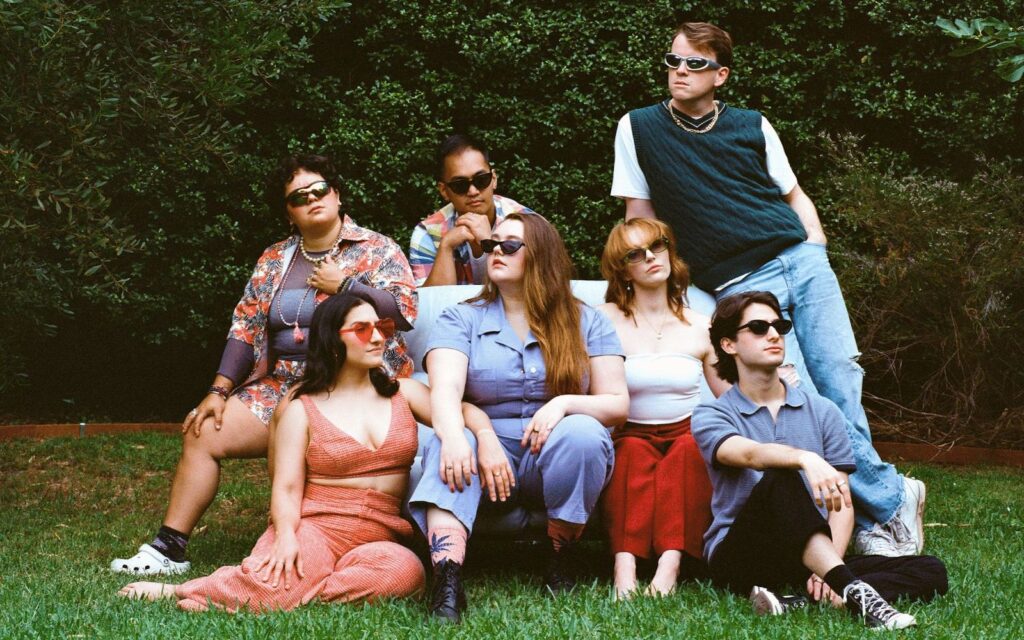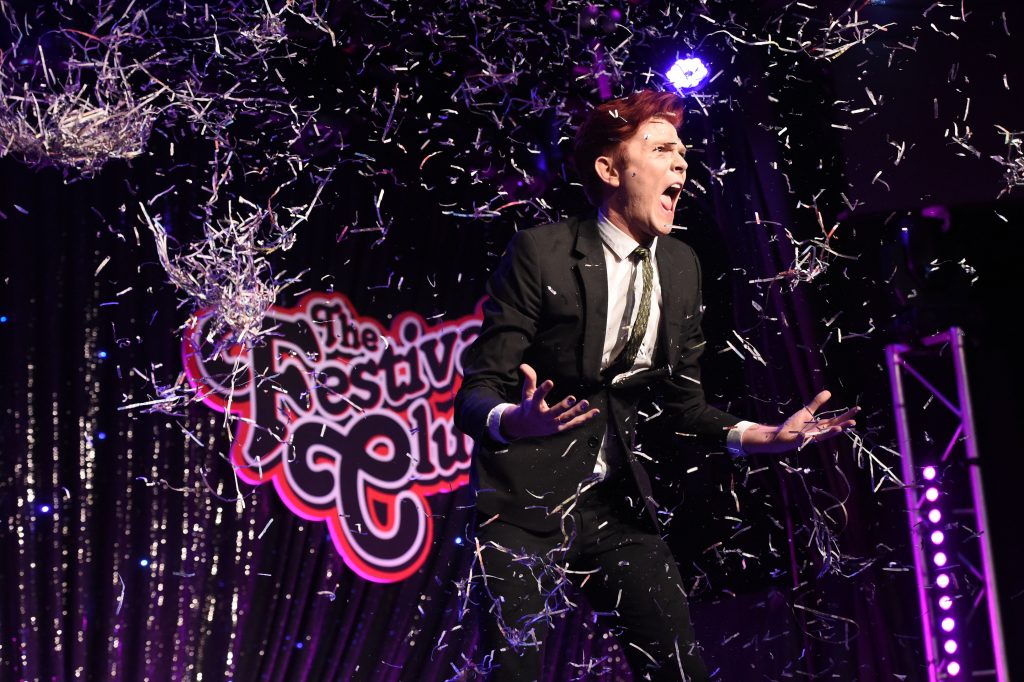“It is a treadmill, but it’s not a treadmill I don’t want to be on,” Allen admits. “As treadmills go it’s a good one, and the landscape does keep changing. So maybe it’s not a treadmill. But you’re always on it. Maybe it’s more like a merry-go-round. We’ll do a festival circuit, Melbourne, then up to Sydney, then Edinburgh, and any number of other venues in between. But because of where the festivals are placed during the year, you do end up in a bit of a cycle. One year we closed in New Zealand after touring over a year, and then opened our brand new show in Edinburgh six weeks later. So it does feel, like, ‘What do you mean, you want something new? What do you mean when will we start touring again – we haven’t stopped?’ That said, that example was one of our best shows, maybe because we wrote it in such a hurry. It keeps you going. I’m a procrastinator at heart. I like nothing more than, well, nothing. So in order to be productive, I have to make traps for myself. Comedy festivals, tours. These are the traps I set.”
It doesn’t hurt that these are traps that might also ensnare an unsuspecting audience.The pair are in an interesting position to reflect on the difficulties of maintaining an engaged audience, due in part to the idiosyncratic nature of their shows – a kind of cerebral-surreal montage of sketches – but also to the sheer variety of audiences now. While there are of course significant differences between a comedy festival and a music festival, the cross-over is not as alien as you might expect.
“What’s interesting right now is that a lot of music festivals have comedy,” says Allen. “Last time, we did a tour of rock festivals, which is totally bizarre. It seems like it could work, and sometimes it does, but we had a gig where we went on right after the reggae band Steel Pulse, who are like an institution, one of those family bands who keeps passing the baton. There were a couple of thousand people watching, and then we came out, and did some subtle character things. We finally won some people over, but you have that barricade where there’s the stage and then this moat of security guards, and then the audience, and that distance was unlike anything we’d experienced before. As much as I think a lot of comics would like to get into festivals, it’s a different thing. Especially sketch, which is what we’re doing. ‘Hey you, stop dancing and watch our scene!’ So it’s interesting to try and navigate that. There are so many festivals cropping up over in the UK that have a little bit of everything, so that cross over with comedy is becoming normal.”
It’s easy to imagine stumbling upon Pajama Men on some velvet-draped vaudevillian stage in the midst of something like, the Woodford Folk Festival or Port Fairy. There style is hard to pinpoint; observational, storytelling, but also steeped in a keen appreciation of genre. Suffice to say, their appeal is broad. They are adept at playing off archetypes, and then taking the scene into bewildering new territory, yet they somehow manage to never let go of the audience’s hand. They will bend characters and tropes, but their affection for the material is obvious.
“It’s great to try and figure out where you are in the world, and how you evolve with it all.” he says. “But we’re definitely a product of the cultural things around us. It’s interesting because we never thought of ourselves as social commentators, and we never endeavoured to be political. We just improvised and ran with whatever was coming out, but what’s coming out is always going to be an interpretation of what we’ve seen in our lives, what we’ve been influenced by. At first we kind of thought we were the most original thing.
“It took me a while to realise, yeah, we’re doing original stuff, but we have a lot of influences, and we’re drawing on a lot of archetypes from different genres. But realising that gave us more freedom to explore further. I’d like to leave enough space for the audience to draw their own conclusions, but I don’t want to ever be confusing. I want to give them something they can hang on to just enough. I don’t want to present something that people think is just weird for the sake of it.
“Genres provide a bit of a reference point for people, a bit of an anchor. If you give something that people are familiar with, you can then take them into stranger waters.”
BY ADAM NORRIS







